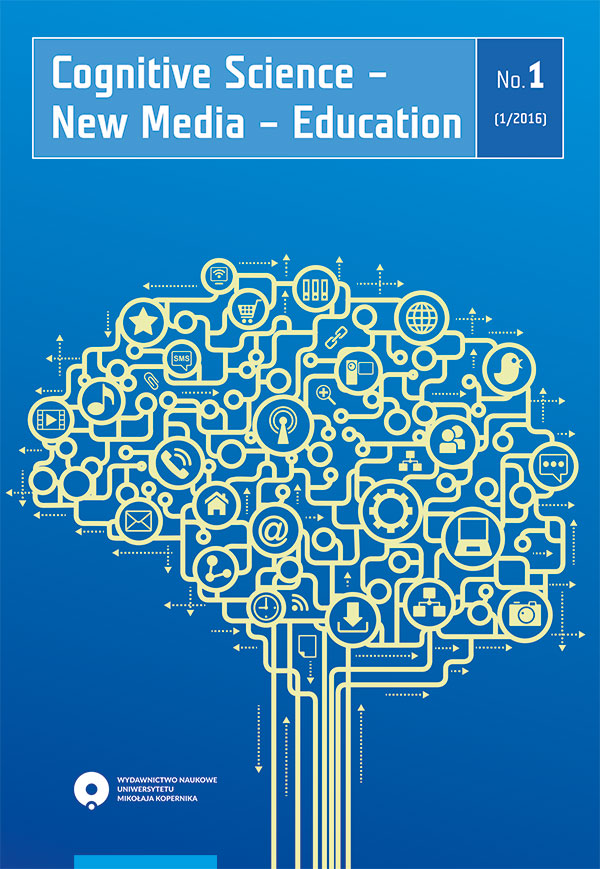Information communication technology: powering up and creating a culture of innovation for 21st century language education
DOI:
https://doi.org/10.12775/CSNME.2016.004Słowa kluczowe
laptops and tablets, mobile learning devices, rapidly deployed software and “apps”, gaming systems, social media, learning environments, online teaching and learningAbstrakt
The contemporary language educator must be focused on rich and high quality experiences for 21st century language learners. Education is rapidly evolving in the digital age with direct application in the classroom for teachers of English to speakers of other languages. The way that we teach is changing by necessity and by design, and innovative teaching and methodologies are essential for the success of students. An arsenal of digital tools is literally at our fingertips for all levels of instruction, and educators must tackle the latest technology and digital learning opportunities as quickly as they emerge, to stay current with their students, if nothing else. In the sections to follow, we explore five of the technologies which we believe every educator must understand to remain current, not only with their peers, but with their increasingly technologically savvy students. These five: laptops and tablets; mobile learning devices, i.e. smart phones; rapidly deployed software and “apps”; gaming systems; and social media, are already being employed in many learning environments. We argue that for the sake of currency, if nothing else, all educators must not just learn, but master all five of these to be effective in the contemporary learning world of the future. We conclude with a section on expertise and online teaching and learning as this has emerged as a significant instructional wave of the future.
Bibliografia
Baek, Y. (2013), Personal communication, April 1.
Bahrani & Taher (2011), Mobile phones: Just a phone or a language learning device?, “Cross-Cultural Communication”, 7, p. 244-248.
Busuu Limited (2013), Busuu, Computer Software. Apple App Store. Version 2.0.
Crawford-Ferre, H. & Wiest, L. (2012), Effective online instruction in higher education, “The Quarterly Review of Distance Education”, Vol. 13(1), pp.11-14.
Duolingo (2013), Duolingo. Computer Software. Apple App Store. Version 2.0.7.
Levine, A. & Dean, D. (2012), Generation on a Tightrope: A Portrait of Today's College Student. John Wiley and Sons, San Francisco, CA.
Mosher, L. (2013), Language learning on the go, “Wall Street Journal”, 261: D11.
Nguyen, T. (2015), The effectiveness of online teaching: Beyond no significant difference and future horizons, “Journal of Online Teaching and Learning”, Vol. II, No. 2.
Rosetta Stone, Ltd. (2012), Rosetta Stone TOTALe Companion. Computer Software. Apple App Store, Version 1.3.3.
USA Weekend (2013), Sifteo cube advertisement, “USA Newspaper”, August 9-11, p.7.
West, D.M. (2013), Mobile Learning: Transforming Education, Engaging Students, and Improving Outcomes., The Brookings Institute, Washington, D.C.
Pobrania
Opublikowane
Jak cytować
Numer
Dział
Statystyki
Liczba wyświetleń i pobrań: 571
Liczba cytowań: 0



